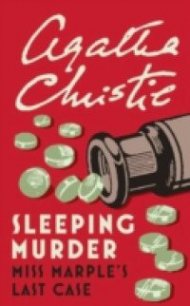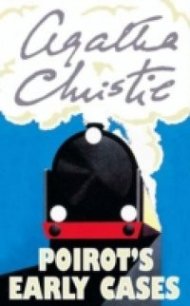Murder on the Orient Express - Christie Agatha (читать книги полные .TXT) 📗
“Naturally,” he said. “The conductor often has to answer bells at night. Do you remember which compartment it was?”
“It was about the middle of the coach, Monsieur. Two or three doors from Madame la Princesse.”
“Ah! tell us, if you please, exactly where this was and what happened?”
“He nearly ran into me, Monsieur. It was when I was returning from my compartment to that of the Princess with the rug.”
“And he came out of a compartment and almost collided with you. In which direction was he going?”
“Towards me, Monsieur. He apologised and passed on down the corridor towards the dining-car. A bell began ringing, but I do not think he answered it.” She paused and then said: “I do not understand. How is it–”
Poirot spoke reassuringly.
“It is just a question of time,” he said. “All a matter of routine. This poor conductor, he seems to have had a busy night – first waking you and then answering bells.”
“It was not the same conductor who woke me, Monsieur. It was another one.”
“Ah! another one! Had you seen him before?”
“No, Monsieur.”
“Ah! – do you think you would recognise him if you saw him?”
“I think so, Monsieur.”
Poirot murmured something in M. Bouc’s ear. The latter got up and went to the door to give an order.
Poirot was continuing his questions in an easy, friendly manner.
“Have you ever been to America, Fraulein Schmidt?”
“Never, Monsieur. It must be a fine country.”
“You have heard, perhaps, who this man who was killed really was – that he was responsible for the death of a little child?”
“Yes, I have heard, Monsieur. It was abominable – wicked. The good God should not allow such things. We are not so wicked as that inGermany.”
Tears had come into the woman’s eyes. Her strong, motherly soul was moved.
“It was an abominable crime,” said Poirot gravely.
He drew a scrap of cambric from his pocket and handed it to her.
“Is this your handkerchief, Fraulein Schmidt?”
There was a moment’s silence as the woman examined it. She looked up after a minute. The colour had mounted a little in her face.
“Ah! no, indeed. It is not mine, Monsieur.”
“It has the initial H, you see. That is why I thought it was yours.”
“Ah! Monsieur, it is a lady’s handkerchief, that. A very expensive handkerchief. Embroidered by hand. It comes from Paris, I should say.”
“It is not yours and you do not know whose it is?”
“I? Oh! no, Monsieur.”
Of the three listening, only Poirot caught the nuance of hesitation in the reply.
M. Bouc whispered in his ear. Poirot nodded and said to the woman:
“The three sleeping-car attendants are coming in. Will you be so kind as to tell me which is the one you met last night as you were going with the rug to the Princess?”
The three men entered. Pierre Michel, the big blond conductor of the Athens-Paris coach, and the stout burly conductor of the Bucharest one.
Hildegarde Schmidt looked at them and immediately shook her head.
“No, Monsieur,” she said. “None of these is the man I saw last night.”
“But these are the only conductors on the train. You must be mistaken.”
“I am quite sure, Monsieur. These are all tall, big men. The one I saw was small and dark. He had a little moustache. His voice when he said ‘Pardon’ was weak, like a woman’s. Indeed, I remember him very well, Monsieur.”
13. Summary of the Passengers’ Evidence
“A small dark man with a womanish voice,” said M. Bouc.
The three conductors and Hildegarde Schmidt had been dismissed.
M. Bouc made a despairing gesture. “But I understand nothing – but nothing, of all of this! The enemy that this Ratchett spoke of, he was then on the train after all? But where is he now? How can he have vanished into thin air? My head, it whirls. Say something, then, my friend, I implore you. Show me how the impossible can be possible!”
“It is a good phrase that,” said Poirot. “The impossible cannot have happened, therefore the impossible must be possible in spite of appearances.”
“Explain to me, then, quickly, what actually happened on the train last night.”
“I am not a magician, mon cher. I am, like you, a very puzzled man. This affair advances in a very strange manner.”
“It does not advance at all. It stays where it was.”
Poirot shook his head. “No, that is not true. We are more advanced. We know certain things. We have heard the evidence of the passengers.”
“And what has that told us? Nothing at all.”
“I would not say that, my friend.”
“I exaggerate, perhaps. The American Hardman, and the German maid – yes, they have added something to our knowledge. That is to say, they have made the whole business more unintelligible than it was.”
“No, no, no,” said Poirot soothingly.
M. Bouc turned upon him. “Speak, then, let us hear the wisdom of Hercule Poirot.”
“Did I not tell you that I was, like you, a very puzzled man? But at least we can face our problem. We can arrange such facts as we have with order and method.”
“Pray continue, Monsieur,” said Dr. Constantine.
Poirot cleared his throat and straightened a piece of blotting-paper.
“Let us review the case as it stands at this moment. First, there are certain indisputable facts. This man, Ratchett or Cassetti, was stabbed in twelve places and died last night. That is fact one.”
“I grant it you – I grant it, mon vieux,” said M. Bouc with a gesture of irony.
Hercule Poirot was not at all put out. He continued calmly.
“I will pass over for the moment certain rather peculiar appearances which Dr. Constantine and I have already discussed together. I will come to them presently. The next fact of importance, to my mind, is the time of the crime.”
“That, again, is one of the few things we do know,” said M. Bouc. “The crime was committed at a quarter past one this morning. Everything goes to show that that was so.”
“Not everything. You exaggerate. There is, certainly, a fair amount of evidence to support that view.”
“I am glad you admit that at least.”
Poirot went on calmly, unperturbed by the interruption. “We have before us three possibilities.
“(1)-that the crime was committed, as you say, at a quarter past one. This is supported by the evidence of the watch, by the evidence of Mrs. Hubbard, and by the evidence of the German woman, Hildegarde Schmidt. It agrees with the evidence of Dr. Constantine.
“(2)-that the crime was committed later, and that the evidence of the watch was deliberately faked in order to mislead.
“(3)-that the crime was committed earlier, and the evidence faked for the same reason as above.
“Now if we accept possibility (1) as the most likely to have occurred, and the one supported by most evidence, we must also accept certain facts arising from it. If the crime was committed at a quarter past one, the murderer cannot have left the train, and the questions arise: Where is he? And who is he?
“To begin with, let us examine the evidence carefully. We first hear of the existence of this man – the small dark man with a womanish voice – from the man Hardman. He says that Ratchett told him of this person and employed him to watch out for the man. There is no evidence to support this; we have only Hardman’s word for it. Let us next examine the question: Is Hardman the person he pretends to be an operative of a New York detective agency?
“What to my mind is so interesting in this case is that we have none of the facilities afforded to the police. We cannot investigate the bona fides of any of these people. We have to rely solely on deduction. That, to me, makes the matter very much more interesting. There is no routine work. It is all a matter of the intellect. I ask myself: Can we accept Hardman’s account of himself? I make my decision and I answer ‘Yes.’ I am of the opinion that we can accept Hardman’s account of himself.”



